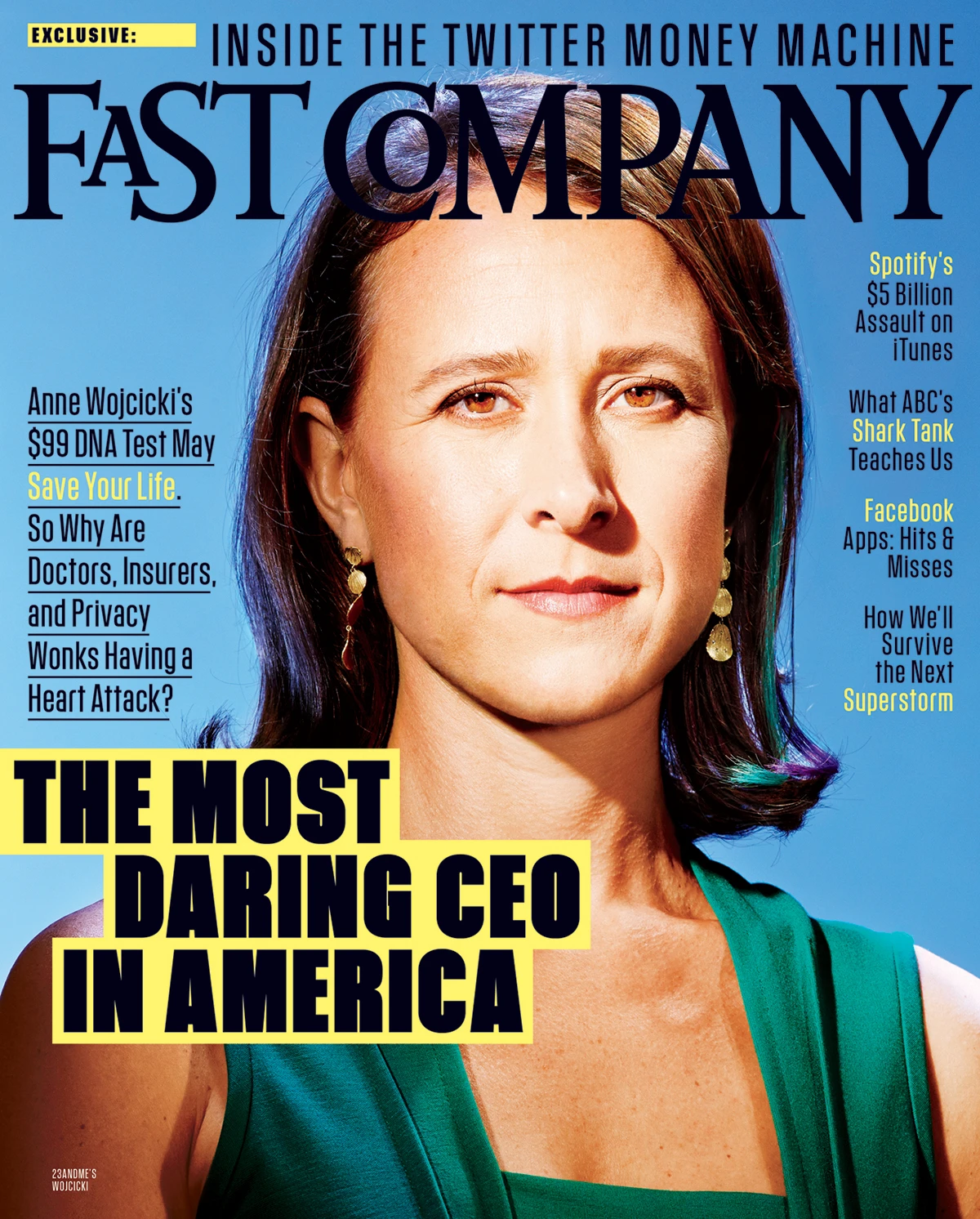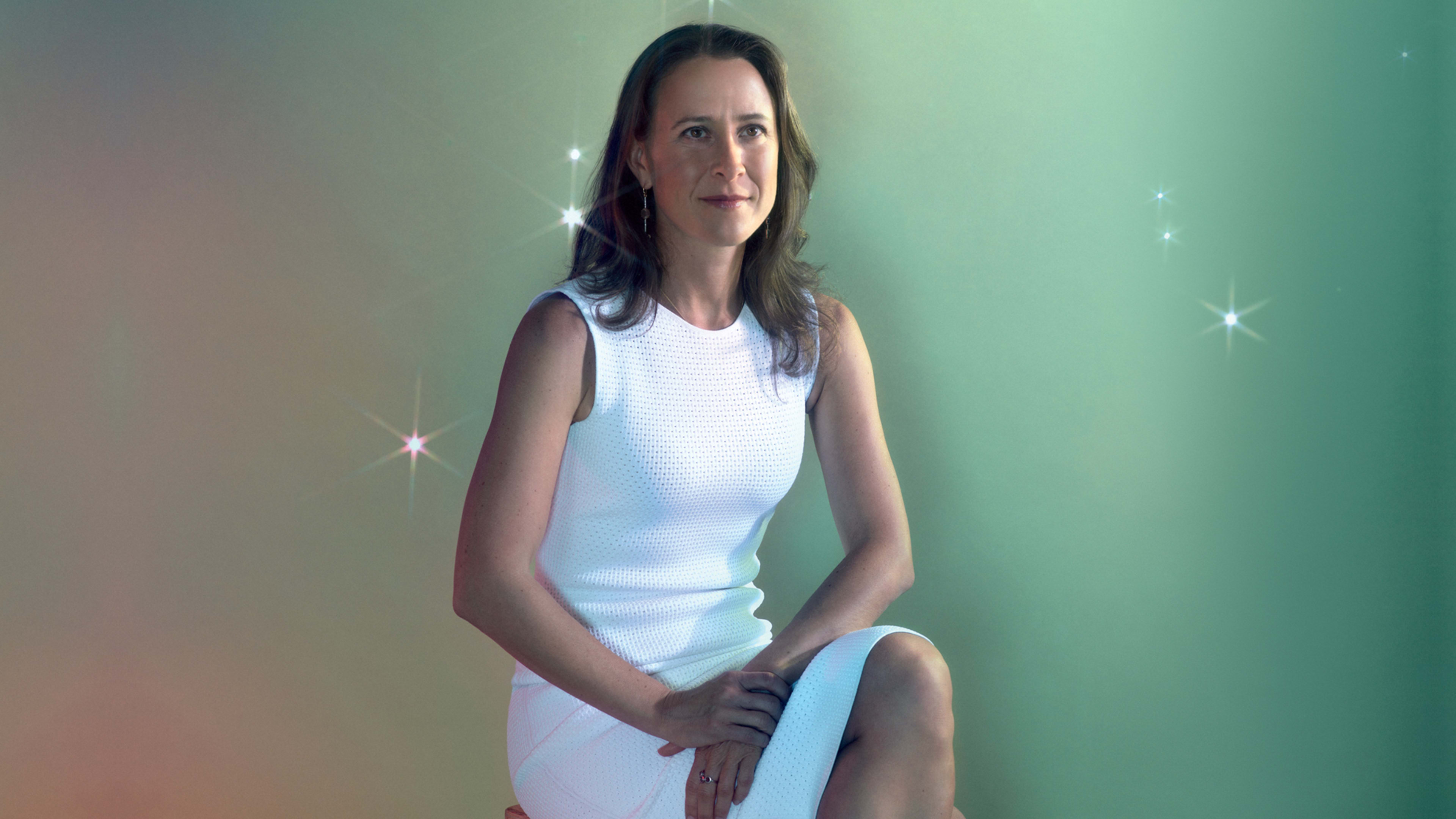Wearing a blue fleece jacket, running shorts, and sneakers, her hair in a ponytail, Anne Wojcicki is recounting her evening out the night before. She and a couple of friends had gone to see U2 at Levi’s Stadium in Santa Clara (she’s friendly with the band), and Wojcicki had forgotten not only her friends’ tickets but her own access badge, too. So, she says, “We just busted our way in.”
Wojcicki, sitting in a glass conference room at the Mountain View, California, office of 23andMe, the company she cofounded in 2006, seems not to appreciate the irony of her story. Just four years earlier she paid a heavy price for trying to bulldoze her way through obstacles: In November 2013, the FDA gave 23andMe a forceful slap-down, barring the company from selling its revolutionary DNA spit test, which had stirred passionate interest and generated headlines for promising to democratize genetic testing and yield data-driven cures for disease. (Fast Company had even run a cover story calling her “The Most Daring CEO in America.”) The FDA declared her company’s service an “unapproved medical device,” a crippling blow.

While 23andMe could still sell its ancestry product, Wojcicki and her investors—including Google cofounder Sergey Brin (Wojcicki’s then-husband, who has personally invested in the company), Google itself (where Anne’s sister Susan was employee No. 18 and is now CEO of YouTube), and Russian billionaire Yuri Milner—hadn’t stuck their necks out and put up $118 million to build a genealogy service. 23andMe’s unique value proposition, and its founders’ mission, was to empower individuals with actionable genetic health information. Suddenly all that potential was in doubt.
How 23andMe turned that uncertainty around—and, in fact, expanded its brand—is a tale of perseverance, adaptability, and what in days gone by might have been called gumption. Less than a year after the FDA’s rebuke, for instance, Wojcicki signed a lease on a new, larger office space, even though it wasn’t clear at that time if the company would survive. A glass hive with a rooftop garden and free lunch and snacks for the nearly 300 employees, the space sports reminders of what the company has already overcome. A green couch sits in a common seating area, one of a crop of hand-me-downs from Wojcicki’s first apartment in New York. “We’ve been really frugal,” she says. “We used to pride ourselves on these $19 Ikea chairs that would break if you weighed over 220 pounds. We would go visit competitors in the early days and say, ‘Oh, they’ve got fancy chairs—they’re burning cash.’ ”
Recognize your brand’s excellence by applying to this year’s Brands That Matter Awards before the early-rate deadline, May 3.
